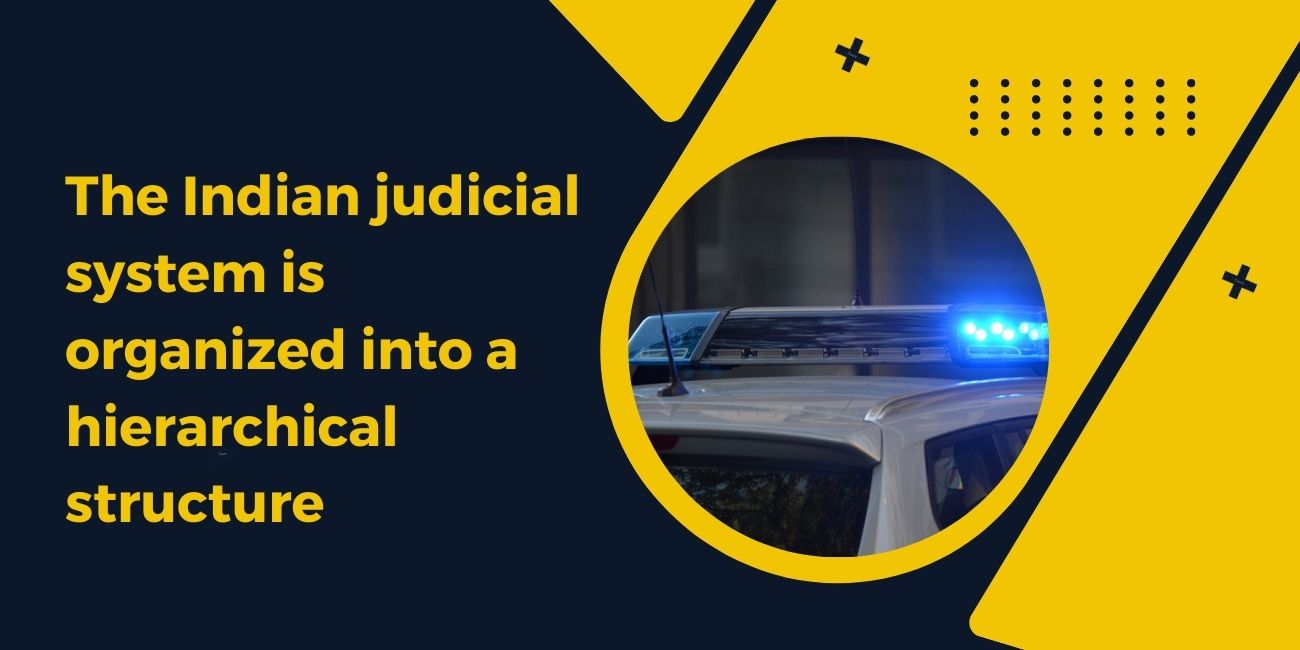
The Indian judicial system is organized into a hierarchical structure, with different levels of courts that have varying degrees of jurisdiction and authority. Here is the general hierarchy of courts under Indian law:
- Supreme Court of India: The Supreme Court is the highest court in India and serves as the final court of appeal. It has the authority to hear appeals from lower courts, settle constitutional disputes, and deliver judgments on significant legal matters. The Supreme Court also has the power of judicial review to ensure the constitutionality of laws and government actions.
- High Courts: Each state in India has a High Court. High Courts have jurisdiction over a specific state or union territory and have both original and appellate jurisdiction. They hear appeals from lower courts within their jurisdiction, issue writs for the protection of fundamental rights, and handle cases of significant legal importance.
- District Courts: District Courts are the primary trial courts at the district level. They have jurisdiction over civil and criminal cases within their geographical area. District Courts hear original cases, conduct trials, and decide on matters related to civil disputes, family matters, and criminal offenses.
- Subordinate Courts: Below the District Courts are various levels of subordinate courts, such as Sessions Courts, Magistrates Courts, and Specialized Courts. These courts handle specific types of cases and fall under the jurisdiction of the District Courts.
- Tribunals and Specialized Courts: India also has a system of specialized tribunals and courts that handle specific areas of law, such as tax disputes, administrative matters, labor disputes, and more. These tribunals operate independently of the traditional court system.
Indian legal system also includes various levels of appellate courts, which hear appeals from lower courts and tribunals. Additionally, the concept of “writ jurisdiction” is significant in Indian law. Writs are orders issued by the High Courts and the Supreme Court to protect and enforce fundamental rights.
If you want to be a judicial officer and are looking for RJS coaching, here, at Jyoti Judiciary we provide comprehensive study material to make your preparation solidified and topnotch. From preliminary mock tests to main answer writing sessions every material required for clearing the exam is provided. We have separate legal current affairs classes, legal general knowledge, and current affairs classes all in one-time enrolment. Hurry up.
This article has been written by Shivani Singh, Faculty at Jyoti Judiciary.









